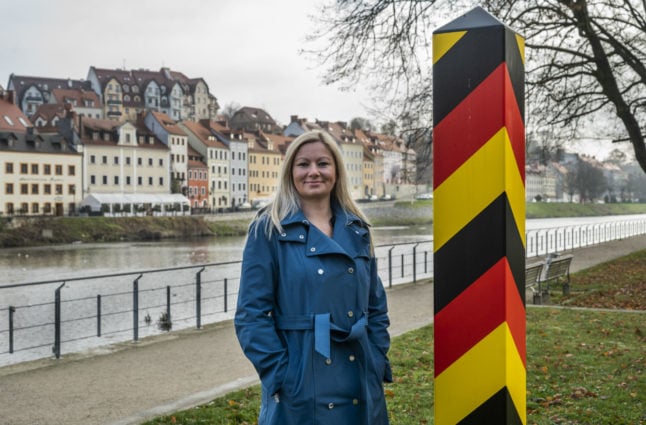The parcels of Polish and German delicacies are being sent by the city of Görlitz in Germany's former communist East, as part of efforts to attract Poles in Britain who are tempted to return to the continent because of Brexit.
Faced with labour shortages and an ageing population, the city on the border with Poland has been running a campaign over the past year aimed at the some 900,000 Poles currently living in the UK.
READ ALSO: Eastern German town of Görlitz named best filming location in Europe
Around 100,000 have already left since Britain's referendum on leaving the European Union in 2016.
The campaign has included adverts in British newspapers, a Facebook page and a website with an FAQ in three languages where Poles can find answers to questions such as “Can I transfer my company's headquarters,” “Will my health insurance cover me when I arrive in Görlitz,” and “Can I work in Görlitz without language skills?”
The city's reasonable rents, architectural gems and picturesque cobbled streets are also highlighted as selling points.

Archive photo shows summer tourists in Görlitz's picturesque old town. Photo: DPA
Bilingual classes
Görlitz is a home away from home for Poles, according to Andrea Behr, in charge of investment strategy for the city authorities and head of the project.
“If you go into a bakery, you might well be served by a Polish woman… If you go to nurseries or schools, you will find bilingual classes,” she said.
Some 4,000 of the city's 57,000 inhabitants are Polish, and many others commute across the border every day, drawn by the more generous salaries on the other side of the Neisse river.
Görlitz is just a short hop across the John Paul II road bridge from its Polish twin town of Zgorzelec.
Like most of the former communist East Germany, Görlitz has seen its population decline since German reunification.
The glitz and glamour of “Görliwood”, the city's nickname since blockbusters such as “The Grand Budapest Hotel” were filmed there, cannot disguise crumbling facades, boarded-up windows and derelict factories.
Last year, the far-right Alternative for Germany (AfD) party found itself in a position to conquer the town hall in Görlitz, with the traditional parties forming an awkward alliance to block it.
“On average, for every child that is born, two people die. In a few years' time, we will be facing a major labour shortage,” said Behr.
The shortage is already making itself felt. From research to blue-collar and manual trades, IT and the medical sector, jobs are not being filled due to a lack of candidates.
Last year, Görlitz's main hospital placed an advert in a major British daily newspaper urging Poles to consider returning home.
The hospital's management did not wish to comment on the advert.
German salaries
According to the mayor of Zgorzelec, Rafal Gronicz, “most of those leaving the UK will want to maintain the same standard of living and will certainly not return to Poland.”

A view of the Saints Peter and Paul Church (Peterskirche) on the banks of the river Neisse in the historical centre of Görlitz. Photo: AFP/John MacDougall
In Görlitz, “they can earn German wages and at the same time be closer to their families, to their country,” he said.
Izabela Jucha is one of those who have already made the move. After moving to the UK when Poland joined the EU in 2004, she now lives in the region with her husband and their daughter, who goes to school in Görlitz.
The family live on the Polish side but Jucha is learning German in the hope of developing her career in human resources in Görlitz, which “presents better economic opportunities”.
READ ALSO: A portrait of Görlitz, the city that could elect Germany's first AfD mayor
Brexit “marked a leap into the unknown… We didn't know if we were going to lose our jobs,” said the 30-year-old, who lived for 12 years in Northampton and Kettering, England, and then in Canada.
“The future of our 14-year-old daughter was a determining factor in our decision,” she said. “The education system here is very good, and free.”
It remains to be seen how successful the Görlitz campaign will be, especially since it was suspended for several months because of the coronavirus pandemic.
“Moving to a foreign country is not something that can be done overnight,” Behr said. “We must therefore take a long-term view.”
By Yannick Pascuet



 Please whitelist us to continue reading.
Please whitelist us to continue reading.
Member comments